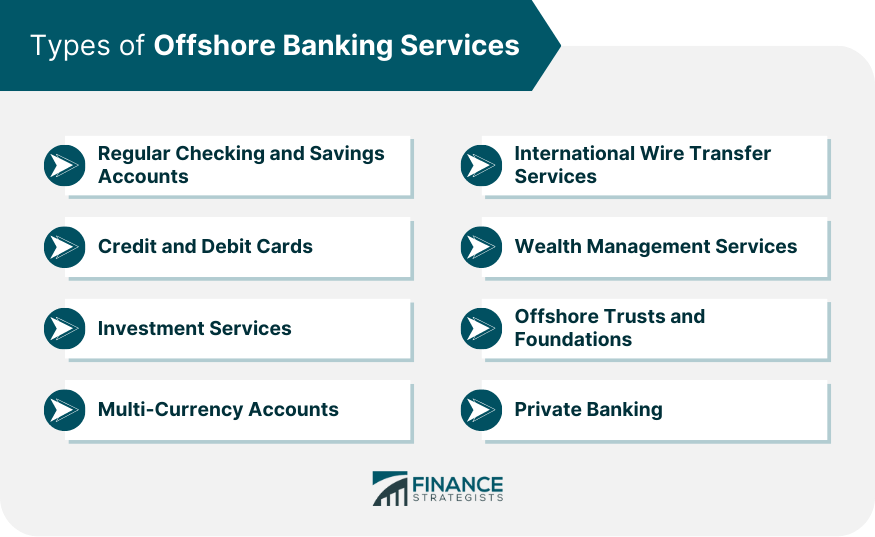Recognizing Offshore Firm Formations: A Comprehensive Guide to the Refine and Benefits
Offshore business formations provide a strategic avenue for entrepreneurs looking for to maximize their service procedures. These entities typically supply advantages such as tax obligation benefits, boosted privacy, and durable asset defense. Comprehending the ins and outs of choosing a territory, the development process, and compliance needs is important. As the landscape of global service advances, the effects of developing an offshore business warrant careful consideration. What actions should one require to browse this complex surface?
What Is an Offshore Firm?
An offshore business is a company entity integrated outside the territory of its proprietors' home, typically in a country with beneficial regulatory and tax obligation settings. These business can offer different functions, including possession defense, global trading, and wealth administration. They are commonly established in jurisdictions called tax obligation sanctuaries, where company tax rates are reduced or nonexistent, and privacy laws are stringent.
Offshore firms might be owned by people or other corporate entities and can operate in numerous fields, including consulting, financing, and shopping. While they supply particular advantages, the legal and governing structures governing overseas business differ substantially by territory. Entrepreneur have to navigate these intricacies to assure compliance with both worldwide and neighborhood regulations. Comprehending the structure and function of offshore business is important for individuals considering this alternative for service procedures or asset management.
Benefits of Forming an Offshore Firm
While the choice to form an offshore firm might stem from numerous tactical considerations, the potential benefits are engaging for many business owners. One substantial benefit is tax optimization; numerous overseas jurisdictions supply favorable tax rates or perhaps tax obligation exceptions, permitting firms to maintain more earnings. Furthermore, overseas firms often provide improved privacy security, protecting the identifications of shareholders and supervisors from public analysis.


Service owners may find operational flexibility, as offshore territories frequently have fewer regulative hurdles, making it possible for structured administration and governance. Collectively, these benefits make overseas business formations an appealing choice for several looking for to broaden their company horizons.
Selecting the Right Jurisdiction
Picking the ideal jurisdiction for an offshore business is a vital step in maximizing the advantages outlined previously. Different variables influence this decision, consisting of tax regulations, business legislations, and the general organization atmosphere. Territories such as the British Virgin Islands, Cayman Islands, and Singapore are commonly preferred for their beneficial tax programs and durable legal structures.
It is necessary to think about the specific requirements of the service, such as privacy needs and regulative conformity. Furthermore, the ease of working, including the performance of company enrollment and financial facilities, plays a substantial function.
Potential proprietors must also assess the political stability and credibility of the picked jurisdiction, as these elements can influence long-lasting success. Eventually, comprehensive research and professional examination are advised to ensure alignment with the firm's goals and to utilize the full potential of overseas advantages.

The Offshore Company Formation Process
The overseas business formation process involves a series of important steps that call for mindful planning and implementation. Originally, individuals or businesses have to choose an appropriate territory that aligns with their objectives, thinking about factors such as tax obligation benefits, personal privacy, and governing setting. Following this, the following action entails choosing the proper business structure, such as an International Company Company (IBC) or Limited Obligation Firm (LLC)
Once the structure is identified, necessary records, consisting of a service strategy, identification, and proof of address, have to be prepared. Involving a reputable neighborhood agent or company can improve this phase, ensuring compliance with local regulations. After sending the called for documents to the relevant authorities, the formation process generally finishes in the issuance of a certificate of consolidation. This document develops the firm as a lawful entity, permitting it to carry out company globally.
Legal Requirements and Compliance
Recognizing the legal demands and conformity responsibilities is important for any person seeking to establish an offshore business. Each territory has details laws that need to be stuck to, which can include company enrollment, acquiring required licenses, and maintaining neighborhood addresses. Offshore Company Formations. It is essential to assign a signed up agent who can help with communication with local authorities and warranty compliance with continuous coverage demands
In addition, many jurisdictions call for the entry of yearly financial statements, together with tax filings, also if the company does not create earnings. Supervisors and shareholders must be determined, with due diligence procedures typically mandated to validate their identities. Failure to fulfill these legal obligations can lead to penalties or the dissolution of the business. Because of this, prospective overseas business proprietors must speak with legal professionals experienced in international organization law to browse these intricacies efficiently and ensure complete conformity with all policies.
Tax Obligation Ramifications of Offshore Firms
The tax ramifications of offshore business existing considerable benefits that draw in many entrepreneurs. Comprehending the connected compliance demands is important for navigating the intricacies of global tax legislations. This section will certainly discover both the possible advantages and the required commitments associated with offshore company structures.
Tax Obligation Benefits Introduction
Overseas firms are usually watched with hesitation, they can provide significant tax obligation benefits for individuals and businesses seeking to optimize their economic strategies. One of the main advantages is Learn More Here the possibility for reduced corporate tax obligation rates, which can cause significant cost savings. Many offshore territories provide desirable tax obligation regimens, including no or very little tax obligation on revenues, capital gains, and inheritance. Additionally, offshore companies can help with global organization procedures by decreasing tax obligation liabilities related to cross-border deals. This structure may also make it possible for tax deferral opportunities, enabling profits to expand without prompt taxes. Ultimately, these benefits add to improved economic performance and possession security, making offshore business an appealing alternative for wise investors and entrepreneurs.
Compliance Needs Described
Offshore companies may provide tax obligation benefits, yet they also feature a collection of conformity requirements that need to be very carefully browsed. These entities go through details reporting obligations, which vary significantly relying on the jurisdiction. Typically, overseas companies need to maintain accurate financial records and send annual economic statements to follow regional guidelines. Furthermore, lots of jurisdictions need the disclosure of advantageous possession to deal with cash laundering and tax obligation evasion. Failing to follow these compliance measures can lead to extreme penalties, including penalties and potential loss of company licenses. Comprehending the local tax obligation legislations and international agreements is essential, as they can impact tax liabilities and total operational legitimacy. Involving with economic and legal professionals is suggested to assure complete compliance.
Maintaining and Managing Your Offshore Firm
Preserving and handling an offshore company involves sticking to various recurring conformity demands essential for legal operation. This consists of attentive monetary document keeping and an understanding of tax obligation commitments pertinent to the business's territory. Efficient monitoring not just guarantees regulative compliance yet likewise sustains the firm's monetary wellness and long life.
Recurring Compliance Requirements
Guaranteeing continuous conformity is vital for any type of entity operating in the offshore sector, as failing to satisfy governing demands can result in significant fines and even dissolution of the business. Offshore business must stick to regional laws, which might consist of yearly filing of monetary declarations, settlement of necessary fees, and preserving an authorized workplace address. In addition, companies are usually required to designate a local representative or agent to assist in communication with authorities. Routine updates on changes in regulations or tax obligation requirements are important for conformity. In addition, adherence to anti-money laundering (AML) and know-your-customer (KYC) laws is imperative. By preserving arranged records and remaining informed, offshore business can guarantee they remain compliant and minimize risks related to non-compliance.
Financial Record Maintaining
Reliable economic document keeping is necessary for the effective administration of any type of offshore business. Preserving exact and comprehensive economic documents aids in tracking the firm's performance, guaranteeing compliance with local laws, and assisting in notified decision-making. Firms should carry out organized processes for recording revenue, expenses, and deals to produce transparency and liability. Using audit software program can simplify this procedure, enabling real-time monetary analysis and coverage. Frequently assessing economic statements aids recognize trends, analyze productivity, and take care of capital efficiently. It is important to safely keep these records to safeguard sensitive information and warranty very easy gain access to throughout audits or economic evaluations. By prioritizing thorough monetary record maintaining, overseas business can enhance functional efficiency and assistance lasting success.
Tax Obligations Introduction
Comprehending tax obligation responsibilities is vital for the correct management of an overseas business, as it straight affects financial efficiency and Find Out More conformity. Offshore business may undergo numerous tax regulations depending upon their territory, consisting of company tax obligations, value-added tax obligations, and withholding tax obligations. It is essential for local business owner to stay educated concerning their tax duties, as failure to comply can lead to fines and legal concerns. Additionally, lots of offshore territories provide tax obligation incentives, which can greatly benefit organizations if navigated properly. Involving an educated tax advisor or accounting professional focusing on worldwide tax obligation legislation can aid guarantee that firms satisfy their commitments while maximizing their tax obligation methods. Ultimately, thorough tax obligation monitoring adds to the overall success and sustainability of an offshore entity.
Regularly Asked Questions
Can I Open a Checking Account for My Offshore Firm Remotely?
The capability to open a checking account for an offshore business from another location relies on the bank's plans and the jurisdiction's policies. Numerous banks supply remote solutions, yet specific demands might differ substantially in between institutions.
What Are the Expenses Included in Forming an Offshore Business?
The prices involved in forming an offshore firm normally include enrollment charges, lawful and consulting expenditures, and ongoing upkeep fees. These expenses vary significantly based upon jurisdiction, intricacy of the service framework, and specific services required.
Exist Limitations on Who Can Be a Shareholder?
Constraints on investors vary by jurisdiction. Some nations may enforce limitations based upon organization, residency, or nationality kind - Offshore Company Formations. It's essential for possible financiers to research read this study certain laws relevant to their picked offshore area
How much time Does the Offshore Company Development Process Usually Take?
The overseas firm formation procedure generally takes in between a couple of days to several weeks. Variables affecting the timeline include jurisdiction demands, record preparation, and responsiveness of pertinent authorities included in the registration process.
What Happens if I Fail to Conform With Neighborhood Legislations?
Failing to comply with neighborhood regulations can lead to extreme penalties, including penalties, lawsuit, or loss of service licenses - Offshore Company Formations. It might additionally damage the business's credibility and prevent future company opportunities in the territory
An overseas business is a service entity included outside the jurisdiction of its proprietors' residence, commonly in a nation with favorable regulatory and tax settings. One substantial benefit is tax optimization; lots of offshore jurisdictions offer beneficial tax rates or also tax obligation exceptions, enabling companies to keep more profits. Overseas firms are usually checked out with apprehension, they can provide substantial tax obligation advantages for people and services looking for to optimize their economic techniques. Furthermore, overseas firms can facilitate worldwide service procedures by minimizing tax obligation obligations connected with cross-border deals. Offshore business may be subject to various tax obligation regulations depending on their territory, including corporate taxes, value-added tax obligations, and withholding taxes.